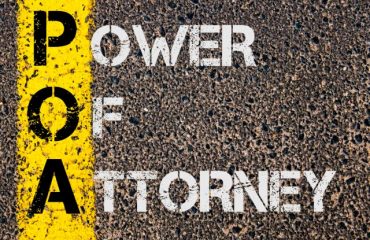
It appears that the Bank of Mum and Dad is here to stay as house buyers struggle to cope with the economic impact of the COVID crisis and the uncertainties of the Brexit ramifications. According to research by Legal and General, nearly one in four housing transactions (23%) will be backed by family in 2020.
A third (33%) of those likely to buy a house in the next five years said that this will be done using money from family and friends. All of which is great news for prospective buyers and for the health of the housing market.
But what if you are Mum and Dad?
It is worth giving proper consideration to the basis upon which you are contributing to the purchase before any money changes hands. Also, how that will work in practice and how this financial assistance will fit within your wider financial/estate planning.
Adjoa Djan-Krofa, Principal Solicitor at Pishon Gold Solicitors, said: “We have seen an increasing number of parents and family members looking to help out their children with house purchases. It is important that all parties are clear on the terms upon which sums are advanced. The cost of untangling disputes can be mitigated by open and frank dialogue at an early stage.
“Dotting the Is and crossing the Ts at the time the contribution is made is definitely the best plan”
Each person’s circumstance and tax position is different and it is important that you take independent legal advice pertinent to your situation before your proceed. These are some options that other families have put in place:
Gifting
Possibly the most straightforward method when it comes to providing financial support. It is useful to have this recorded formally by a Deed of Gift. This is a formal legal document used to gift money or property to another person without payment being demanded in return.
It is worth remembering that a gift is not reversible. Also, gifting money can have Inheritance Tax implications. If the person gifting the money dies within seven years of making the gift and it is valued above the Inheritance Tax threshold then the person receiving the gift will need to pay Inheritance Tax. This is assessed on a sliding scale – with the whole amount being due if the death occurs during the first year after gifting and that amount reducing each year until the seven year cut off point is reached. It may be possible to organise the gift to come from the younger/healthier parent who is more likely to survive the seven years. Your Solicitor will be able to advise you.
Loan
You can advance money to your child that they would have received upon your death. This can be interest free or not – your Solicitor will be able to advise you. The sums may be charged against their property as a second charge if they are buying with a mortgage already and the first mortgage lender will need to agree to this.
Trust Deed
This is a binding legal deed setting out the different contributions or interests in a property. It is particularly relevant if your name will not be on the title deed. One of the advantages of having a Trust Deed is that it also makes sure that the money you pass to your child is protected. For example, if they buy a property with a partner and that relationship subsequently fails then the Trust Deed means that the money you advanced comes back to your child upon sale of the property.
Of course, with all that 2020 has thrown at us, it’s not just property purchases for which children may need to approach the Bank of Mum and Dad.
Adjoa added: “So many people have been furloughed this year and many have lost their jobs. Sadly, this has particularly affected young people. So, Mum and Dad may find themselves being called upon to help with rent or just general living expenses while children get back on their feet. But it still worth making sure that the terms of any contribution are clear – both now and for the future. Your Solicitor will be able to advise you on how best to do that.”
If you’re considering opening up the Bank of Mum and Dad in 2021 then why not get in touch to discuss your needs? We offer 30 min consultations.







